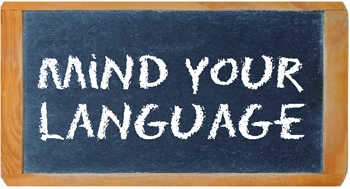
Ratna Raman
We drove down one of New Delhi’s several arterial roads with a friend from Switzerland. Observing that nobody slowed down at the amber lights and that some cars sped off at red lights instead of stopping, he asked if traffic rules were only ‘advisory’ (in the nature of an opinion) in our cities. Assuring him that traffic rules were ‘mandatory’ (compulsory) in the face of obvious violations, proved rather difficult.
The usage of ‘advisory’ was first recorded in the 1770s. Advice (n) in Middle English is usually proffered by prominent persons and is synonymous with counsel or instruction. While advice is usually in the nature of a suggestion, written advisories form part of exchanges in modern life.
Parental advisories are warning labels found on audio recordings and films that may contain inappropriate references or graphic content. Travel advisories provide inputs on what to wear and the best time to visit destinations. Medical advisories indicate vaccinations needed from infancy onwards and include those required while travelling overseas. Advisories (now referred to as apps) on shopping, hospitality, travel, traffic-free routes and health provide useful information.
Advice and advisories, however well-meant, remain in the form of suggestions. Advice is the equivalent of an informed opinion, and acting on it or rejecting it remain options that all recipients can exercise. The proverb: ‘You can take a horse to the water, but you cannot make him drink it,’ draws boundaries regarding advice, while highlighting the freedom to choose.
Recently, it was reported that a Dalit leader asked Muslims for public participation, leaving their burqas and skull caps at home. This was viewed as forward-looking advice and the wearing of the burqa and skull cap was seen as on par with the carrying of the trishul.
The skull cap and the burqa are items of clothing. A skull cap, despite its ominous evocation of the word, ‘skull’, is an exquisitely crocheted, fitting cap. The trishul, a sharp, three-pronged metallic object, can cause injuries, unlike clothing. An advisory that chooses to equate one odd metallic item with two clothing accessories in a set of three cultural markers remains problematic.
People of multiple faiths have the freedom to wear whatever they want and this is non-negotiable. However, the carrying of potential weapons is dangerous and therefore untenable. It should become mandatory for people to leave at home all weapons that can be injurious to health.
Too many of us have been at the receiving end of strident advisories about what to eat, what to wear, what to do, where to be and so on for some time now. These rights remain fundamental in shaping our civilisational choices as Indians in the 21st century. Movers and shakers in the public eye must ‘be advised’ (v) against conducting themselves in the manner of Occidental Administrators settling disputes among barbaric natives. Advisories respecting plurality must be put in place, to keep the peace.



























